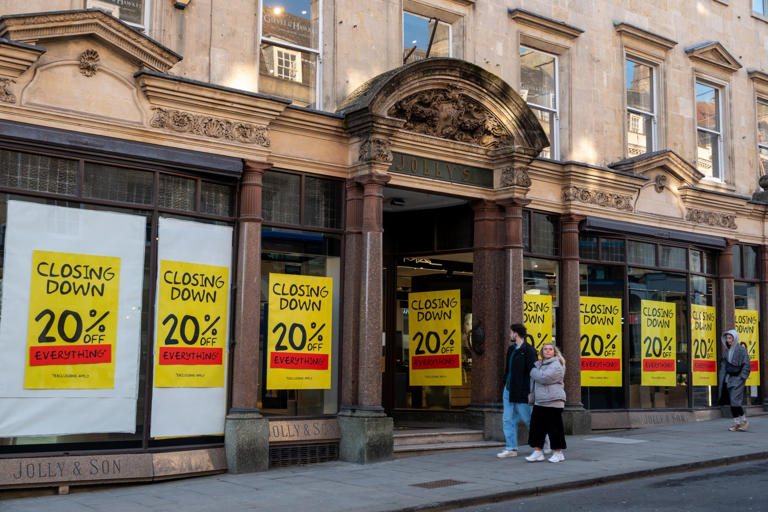London - Alsharq Tribune- Mohamed Otaify
Britain’s biggest retailers have warned that the high street will shed at least 300,000 jobs over the next three years in a blow to the Chancellor’s hopes of reviving local town and city centres.
Retailers including Marks & Spencer, Sainsbury’s and Tesco have fired a warning shot over the future of the industry, saying a “perfect storm” of higher costs and red tape meant they expected one in 10 shop floor workers to leave retail by 2028.
The Retail Jobs Alliance (RJA), a campaign group whose members also include Asda, Primark, B&Q owner Kingfisher and Morrisons, said the number of people leaving the sector could be even higher than its 300,000 forecast.
It said this was because the group’s estimates did not take into account changes announced in the Budget, which pushed up costs for retailers.
The retailers which are part of the RJA employ just under a third of those working in the sector, equal to almost 1m people
It comes as the campaign group re-established itself amid fears over looming higher property taxes for many large city centre stores, on top of rising worker costs.
In October’s Budget, Rachel Reeves said she was increasing the rate of National Insurance contributions paid by employers and lowering the threshold by which companies have to pay it, as well as raising the national minimum wage. Retailers have suggested these worker changes and a new recycling levy will push up their costs by around £7bn.
However, high street bosses said they now risked even higher costs amid a planned shake-up of the business rates system by the Government. Under the proposals, the Treasury is planning to increase tax rates for large properties and lower them for small stores.
Ministers have said this is part of their drive to “breathe life” back into the high street.
Retail giants this week said the business rate plans threatened to hamper retail investment in the UK, lead to store closures and ultimately mean more workers leave the sector.
The RJA said thousands of stores were at risk of a heavy tax blow under the changes. It said much of the impact was likely to be felt in more impoverished communities.
It comes at a time when local towns and city centres are already struggling to lure shoppers. Separate figures from the British Retail Consortium and KPMG released on Tuesday showed non-food sales had flatlined over the past three months. KPMG said consumer demand was “still subdued and household essential bills still high”, while retailers are facing rising costs.
The decision by some of the UK’s largest retailers to re-establish the RJA comes after months of warnings from individual high street chiefs.
Ken Murphy, Tesco’s chief executive, said last month that the business rate changes put big town centre stores at risk, despite them being “often critical to maintaining the integrity of that high street”.
He added: “The risk is that more and more of those large retail sites become unviable.”
Simon Roberts, Sainsbury’s chief executive, said the Government needed to be careful over reforms, saying: “There are big parts of the UK where the supermarket plays a fundamental role at the heart of a community, and we need to make sure that the reform of business rates makes the ongoing viability of those locations really clear.”
The RJA said it was calling for the Government to give shops an exemption from the higher rate business rates multiplier, which is applied to the rateable value of properties to calculate the tax due.
A spokesman for the RJA said: “This change would provide much-needed relief for at-risk stores, enabling them to reinvest in their businesses, retain staff, and grow their footprint on the high street.”
Andrew Griffith, the shadow business secretary, said: “Retail businesses are facing an onslaught from the Government. Business rates hikes, 1970s-inspired employment laws and tax rises simply for employing staff will see the shutters closed forever on thousands of shops.
“The choices Labour have made will directly lead to job losses, with the worst impacts felt in the most disadvantaged communities. Is this the ‘change’ people voted for?”
A Treasury spokesman said: “We delivered a once-in-a-Parliament Budget to wipe the slate clean. Now we are focused on going further and faster to kickstart economic growth so working people have more money in their pockets.
“We’re levelling the playing field for high street businesses by permanently cutting business rates and removing the £110,000 cap for over 280,000 retail, hospitality and leisure business properties, while also capping corporation tax.”








.png?locale=en)












